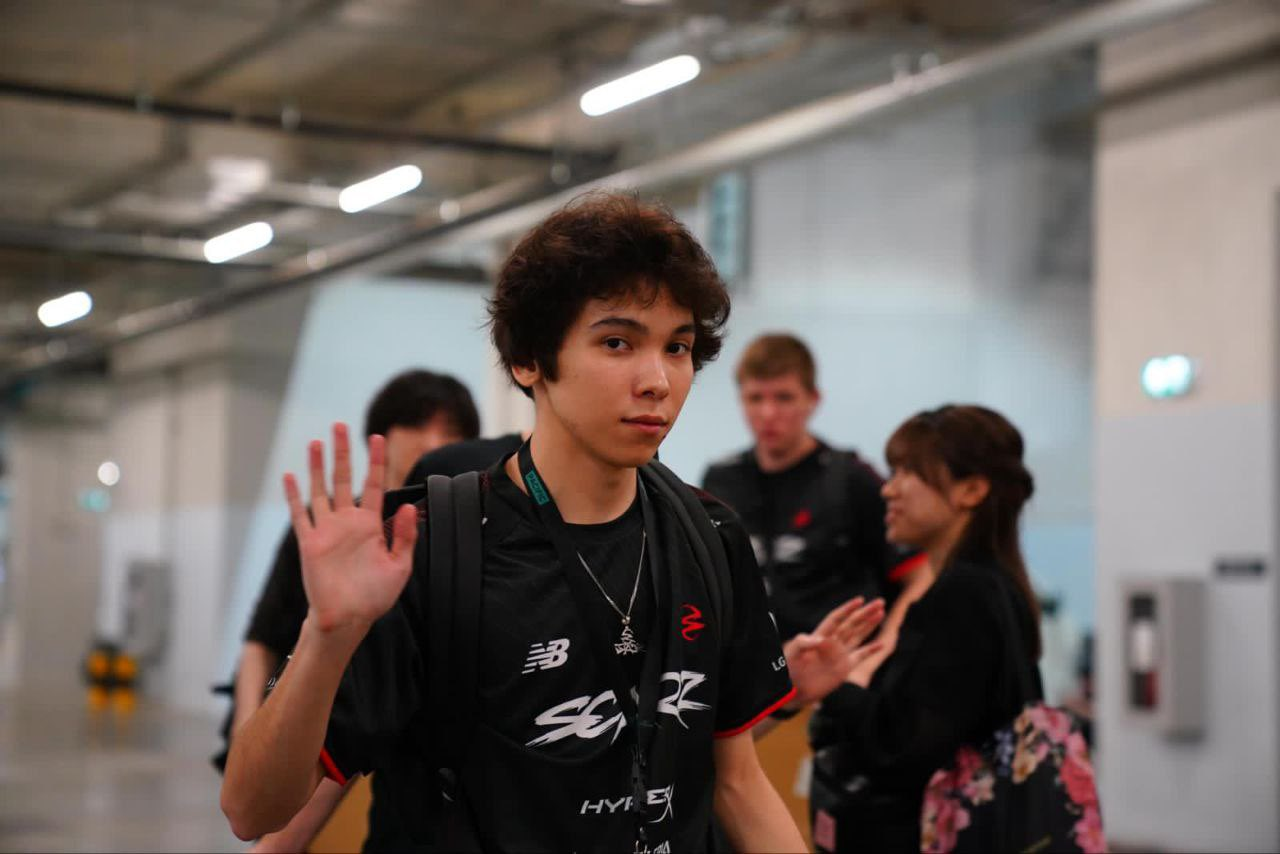
ex-SCARZ coach Fadezis opens up problems about Challengers JP: “Japan is way too comfortable from the start.”
Nothing's perfect. Even competing in the best Challengers circuit in VCT has its own challenges.
JAPAN – We sat down with Daulet "Fadezis" Abilov, former SCARZ coach and current coach for Challengers Oceania team E-KING (formerly JiJieHao BONK), to talk about his journey so far in VALORANT. In this conversation, Fadezis opens up about his beginnings, his time in Japan's competitive circuit, and the state of VALORANT Challengers Japan — from the comfort culture holding players back, to why talent isn’t rising through the ranks.
A Start Unlike Most. Unlike many players from the CIS region, Fadezis entered the world of VALORANT without any prior experience in Counter-Strike or any other FPS games. VALORANT became his first competitive title—and it didn’t take long for him to fall in love with it.
“Then I just wanted to learn more about the game and found ANGE1 guides and learnt there is a pro scene. I started following his team on the pro scene, and then after VCT 2021 and all these big events, I dreamed about how I wanna experience being on stage and winning on the big stage.”
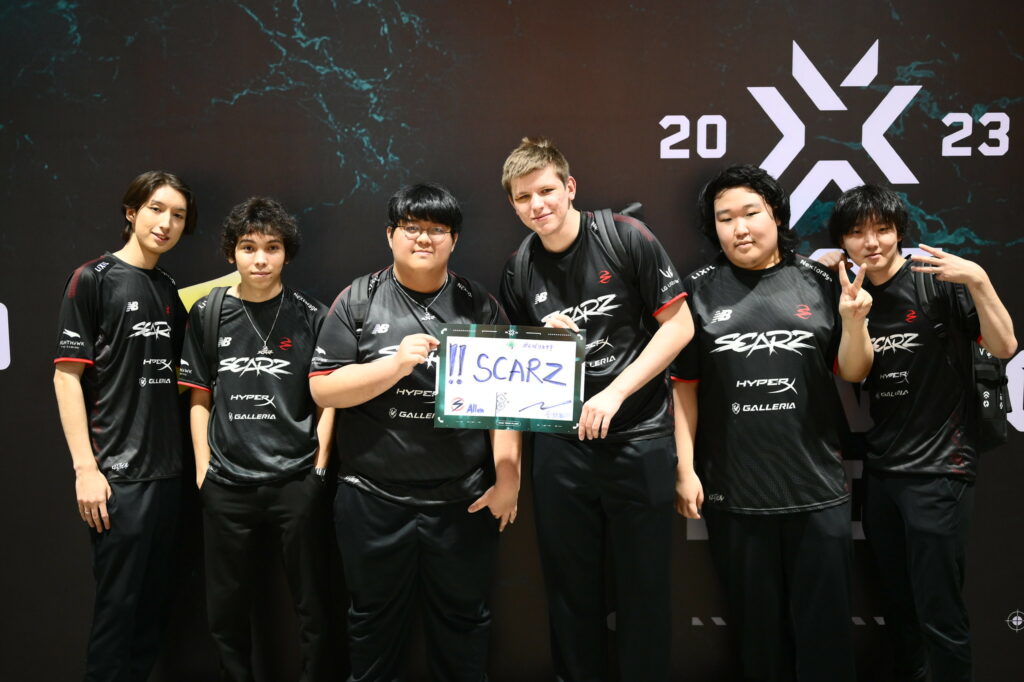
Driven by curiosity, he started learning more about VALORANT’s competitive scene. What began as a casual interest quickly transformed into a deeper pursuit. After some time participating in local CIS tournaments in 2022, the opportunity came knocking. Savva "Kr1stal" Fedorov, now a player for Global Esports in VCT Pacific, invited Fadezis to coach BLUE BEES in the Challengers Japan circuit. It was his first step into the VALORANT Champions Tour circuit—and a new challenge.
“Quickly in two weeks we made some good progress and made it through open, closed quals and ended up in the top 6 in playoffs, beating SCARZ, CGZ, Sengoku and only losing to ZETA and Crazy Raccoon, despite a small amount of time together and tech issues as Kr1stal and Jemkin had bad internet connection to Tokyo server.”
Their strong showing did not go unnoticed. Soon after, SCARZ picked up most of the BLUE BEES roster—and that’s where things really took off for the team and Fadezis.
“We got a better environment, got our players to fly to Japan and play on normal ping from a bootcamp, so we could practice more and spend time together. The BLUE BEES roster had its own limits due to a language barrier. In SCARZ, with their resources, we could bring together a team that could understand each other, communicate, coordinate, and react quickly on calls. The process of coordinating and sharing ideas did become quicker and more efficient, and it led to achieving results.”
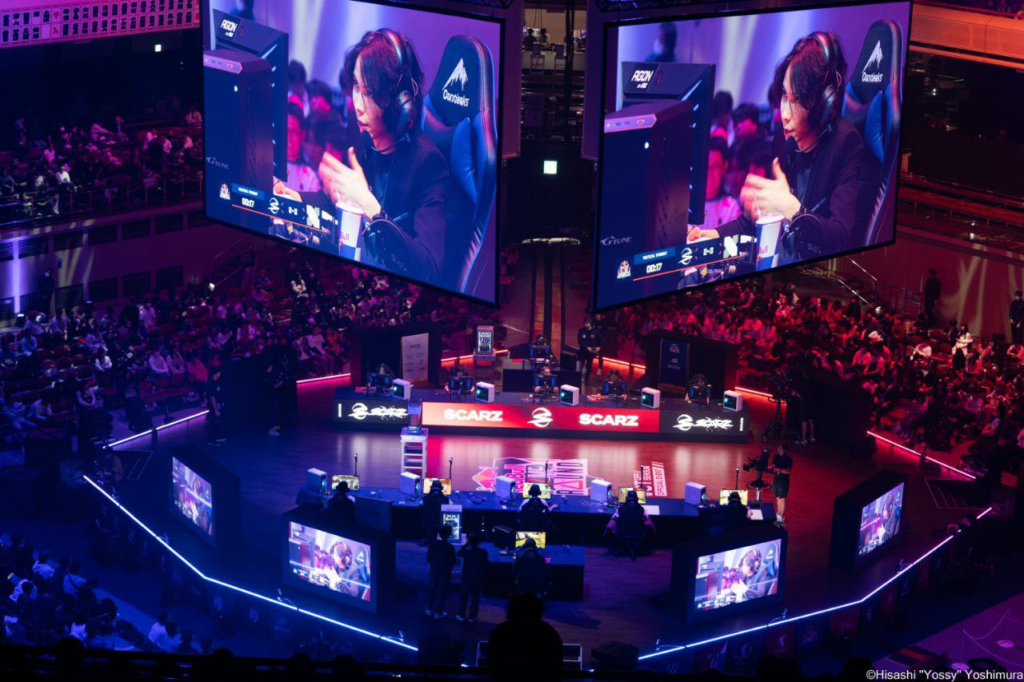
That very SCARZ roster eventually won Japan Split 2 and finished second at Ascension Pacific Bangkok—a feat for a team that only came together recently. Interestingly, both Kr1stal and Jemkin, now competing at the highest level in VCT Pacific, had Fadezis as their coach during their developmental years. We asked him what makes those two stand out as some of the region’s best talents.
“Kr1stal and Jemkin are very confident, responsible, and vocal players with a good amount of ego and are willing to put in a lot of extra work and effort to achieve results. It's easy to work when you can hear what your players like and don't like, what they are comfortable with and what not, what they think and feel they need. [...] We had a lot of arguments, because opinions could be different on some things. But it's good to have arguments and open talks as long as the purpose is to find what's wrong and a way to fix and make stuff to work.
“[...] They are not perfect, but they are actual professionals and people with whom it is easy to work. If I'm not wrong, both of them had professional sports experience behind them, so they are very used to being disciplined and can keep their confidence up and fight till the end.”
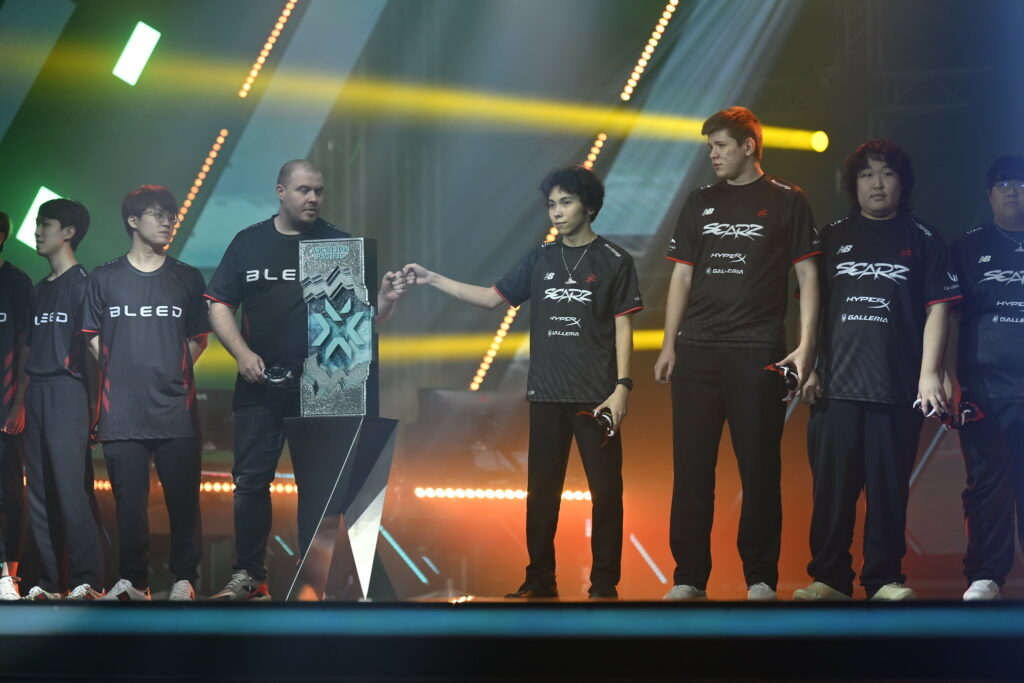
After coaching in Japan for three seasons, Fadezis has a deep understanding of the scene. He knows firsthand how difficult it is to break into the “bubble” that surrounds the VALORANT Challengers Japan (VCJ) scene, one of the most vibrant and heavily viewed tier-two circuits in the VCT.
“The scene has the best ever environments across any other tier 2 circuits. A lot of viewers, fans, orgs, money, insane production, and big LANs. Just by being part of VCJ, you can feel like you are in a tier 1 environment.”
However, while the scene is filled with potential and resources, it also comes with its own unique set of problems. Fadezis points out that the comfort within VCJ may be holding back its true potential. With high salaries, strong fan support, and minimal pressure, players can sometimes lack the hunger to improve. This may also be the circuit's biggest weakness.
Why do you think the JP scene isn’t getting better results on the international stage, even though it seems strong in so many other ways?
“A huge number of orgs entering a new FPS scene is lowering the standards for becoming a paid pro. Just being Radiant, or sometimes not even that, is enough to get signed, simply because the scene isn't saturated with players and there isn’t much competition for spots on paid teams. Orgs are fighting over any decent player, and the good ones are being offered long or large contracts, treated almost like superstars.
Some players show up late, come in after a night with no sleep, skip their routines, don’t communicate during practice, forget their lineups, or just autopilot through scrims. They only do things when specifically asked, nothing extra, just showing up to collect a paycheck, with no initiative, ambition, or emotion.
Because there's such high demand for good players and public opinion carries so much weight, I think orgs can’t even enforce proper salary deductions or punishments. If they try, the player might just leave for another org that’s willing to pay without that stuff and close their eyes to some unprofessionalism. Otherwise, the org risks being labeled as bad.”
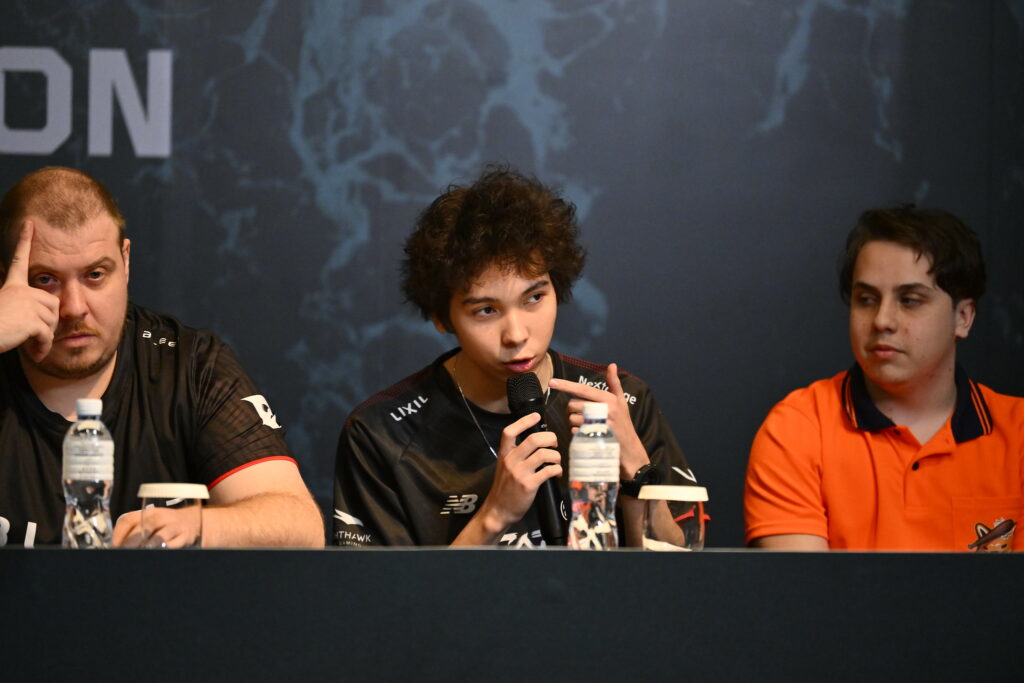
What kind of mindset needs to be built to turn things around then?
“Competition has always started from pure passion and the willingness to prove that you are better without any of such comfy conditions. Only then would the scene grow, and players started getting paid or paid well. There would be thoughts “If only I could put more time into the game and didn't have to mix it with my job, I could be the best”. That’s the natural progression.
But I feel like JP just skipped that phase, and it causes issues. With natural progression, the best and most talented players would just make a team together. Top players want to play with other top players, it's kinda dynamic inside the team. Talented people want to work with other talented people, with someone they respect, because they all genuinely want to be the best. Everyone else dreams of joining that team, which creates pressure to keep improving and giving your all, because there are always hungry players ready to give more under the same conditions just to earn that spot.”
Apart from ZETA and CR, only a handful of teams like NORTHEPTION have managed to break through internationals, and even those instances are rare. Do you think there are fundamental flaws or gaps in how the grassroots scene in Japan is being developed outside of the players themselves?
“In Japan, it feels like you can’t make any moves because so many players, regardless of how good they actually are in tier 2, are locked into long or big contracts. Some players don’t even read their contracts properly, and there are no agents or agencies representing them, so their buyouts are insane. In some cases, org owners can just block transfers from happening. There have even been cases where a player's contract stated they couldn't compete in VCJ for two years after leaving their team; that actually happened.
This is why not a single move from tier 2 to tier 1 has happened during the season in the last three years. On top of that, Japanese fans tend to criticize orgs for making changes mid-season. But the reality is, it often takes time and pressure to truly understand a player's personality or work ethic. Without the fear of being replaced, some players become too comfortable and stop pushing themselves. And because the fanbase is extremely supportive and rarely demands results from their teams, there’s even less incentive for change or improvement.
Everything in VCJ feels so comfortable that people are just happy enough to stay where they are. Even the audience is overwhelmingly supportive, to the point where losing feels acceptable. It’s like you don’t have to be the best; you’ll still get paid, loved, and supported regardless.
Competitors should be hungry for appreciation, hungry to prove themselves worthy. Instead, some players are already full of appreciation without actually earning the results that should justify it. In other regions, players are forced to make real sacrifices to chase their dreams. They leave their home countries, compete in games with little to no pay, and grind through harsh conditions all driven by passion and the desire to prove themselves. Only then do they deserve better conditions and terms.”
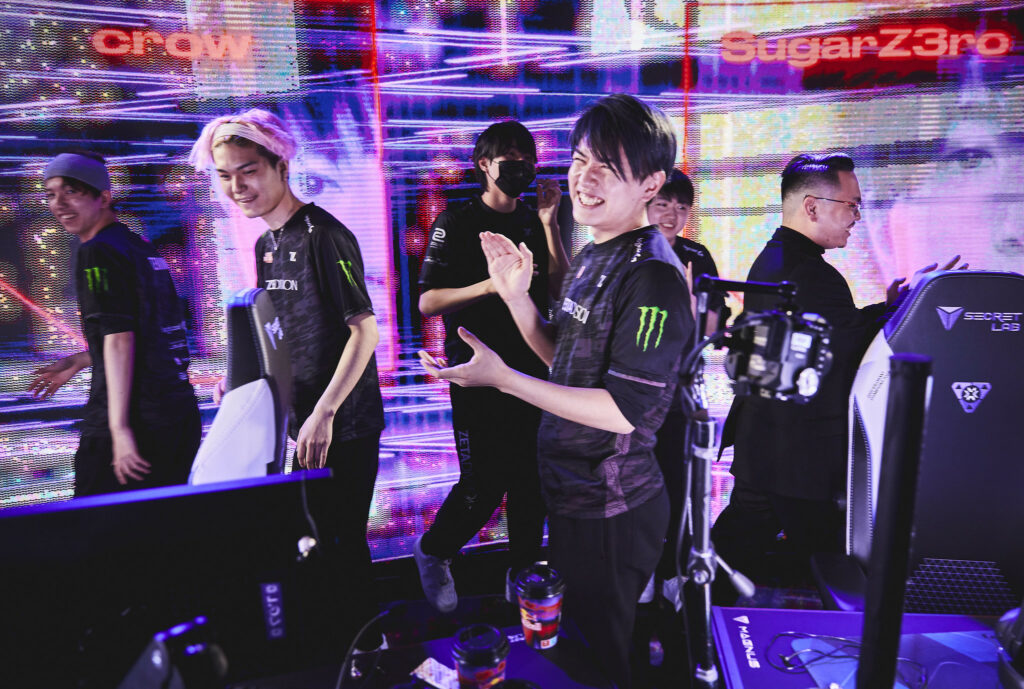
How does this contrast with other regions, from what you see?
“Take a look at Japan’s neighbor, Korea. Despite having lower viewership and only a few orgs that can offer decent salaries, the environment is much more competitive. Contracts aren’t overly long, and players can actually be replaced for unprofessional behavior. There’s high competition in the region, but players want to play and are ready to move overseas, learn new languages, and push themselves just for the chance to play, get paid, and win. KR players take it seriously and don’t limit their opportunities. You can already see Korean players competing in NA, Japan, China, India, and SEA.
Japan has been way too comfortable from the start. Players haven’t been forced to deal with discomfort, to build character, or to truly test how far they’re willing to go to win, to play the game at the highest level and earn their pay for their skills. The incredibly supportive and comfortable environment that formed so quickly in Japan is a double-edged sword.
I think when the bubble eventually bursts, only the players who hold themselves to higher standards and are willing to take real action to win and get paid for doing their job well will remain or rise to the top.
But as long as the scene is treated mainly as entertainment, where unprofessionalism gets overlooked and player weaknesses are patched up with flashy imports, it’s going to stay a league where hungrier foreign players come in, take full advantage of the great conditions, and grow."
It does sound like a case of “Suffering From Success”. But do you think bringing in veterans, players with international experience, and that competitive DNA could help fix things? Or are there other factors at play too?
“A lot of players are giving up on the competitive scene and retiring, and there’s not much new blood coming in that’s good enough to replace them. Honestly, I get it. With such high viewership, it’s easier to make money from streaming, and people just want to live their lives without the constant stress of competing. But for the scene to truly grow, it needs experienced people leading the next generation, guiding teams, sharing their experiences, and helping players handle pressure. You need IGLs and coaches with vision, who understand the game deeply and know how to keep everyone accountable. It's not easy to be a coach, to take on that responsibility, inspire others, and define what it really means to be a professional.
Coaches should be passing down what they’ve learned: what they could’ve done better, what mistakes they made, and how the next generation can avoid those same pitfalls. But when there’s an easier and often more lucrative path in streaming, it’s no surprise many people don’t even consider going that route. The reality is, a lot of coaches today are ex-players who weren’t satisfied with their playing careers, or simply didn’t have the option to retire and stream full-time. What they do have is knowledge and experience, and they’re using that to support the scene. That matters, and it's something we still need more of if we want real, lasting growth.”
The second part of the interview with Fadezis will dive into the journey of becoming a coach—how to get started, how the role evolves over time, and his thoughts on coaching staff sizes, among other insights.
For more insights on the Asian VALORANT scene and upcoming content like this, be sure to like and follow VALO2ASIA on Facebook, Twitter & Instagram.
Cover photo courtesy of VCT Pacific
